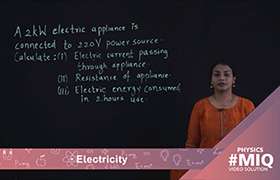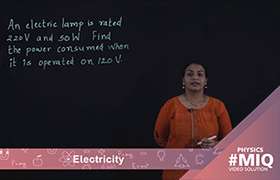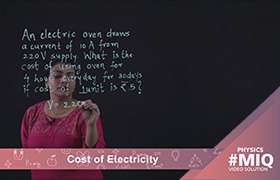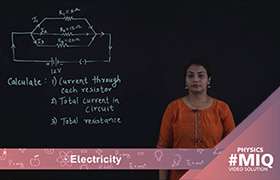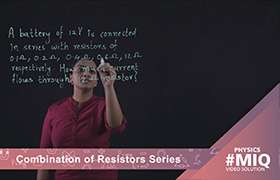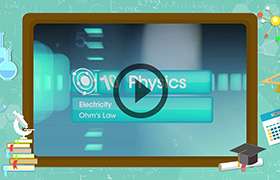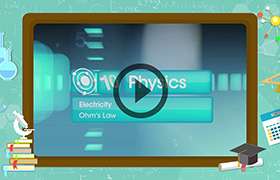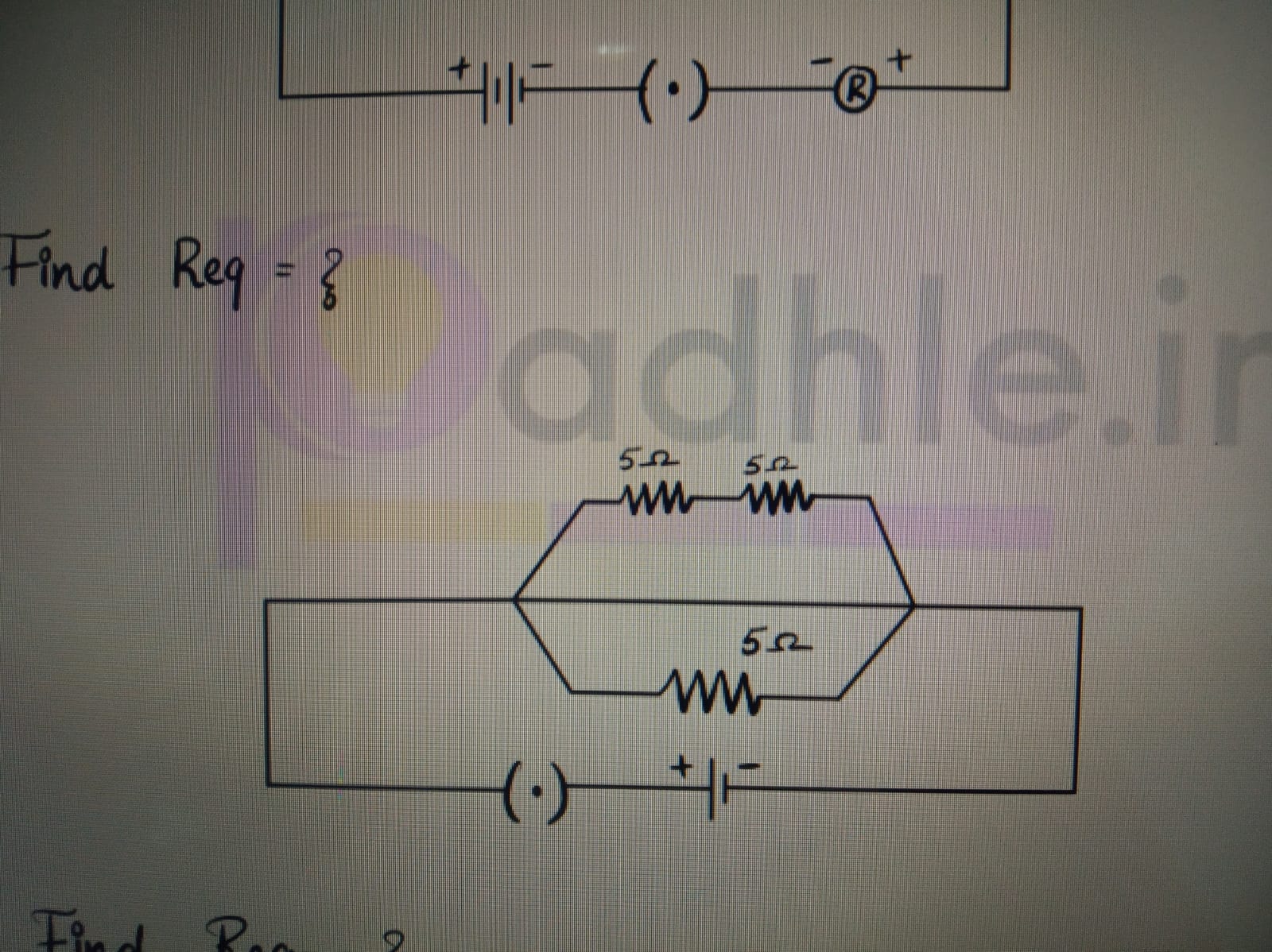CBSE Class 10 Answered
Derive the expression for the heat produced due to a current'I' flowing for a time interval 't' through a resistor'R' having a potential difference 'V' across its ends. With which name is the relation known?How much heat will an instrument of 12W produce in 1 minute if it is connected to a battery of 12V.
Asked by | 24 May, 2012, 09:29: PM
this is called Joule's law of heating.
All materials offer resistance to the flow of current through them. So some external energy is required to make the current flow. This energy is provided by the battery. Some of this energy gets dissipated as heat energy, so the resistor becomes hot.
Work done in carrying a charge Q through a potential difference V is given as
Also, Q = I t
Using Ohm's law, V = I R
W = I 2 Rt
This work done in carrying the charge th
rough the wire appears as the heat produced. i.e., H = V I t = I 2 Rt.
this energy is dissipated as heat energy.
Answered by | 25 May, 2012, 09:57: AM
Application Videos
Concept Videos
CBSE 10 - Physics
Asked by khajannirwan | 27 Feb, 2024, 10:20: PM
CBSE 10 - Physics
Asked by saanviyadla | 24 Jan, 2024, 07:06: PM
CBSE 10 - Physics
Asked by kamalaranjanmohantymohanty5 | 06 Jan, 2024, 10:05: AM
CBSE 10 - Physics
Asked by nandhikasugumar | 05 Oct, 2023, 04:01: PM
CBSE 10 - Physics
Asked by daniya062008 | 02 Oct, 2023, 08:25: PM
CBSE 10 - Physics
Asked by prassanna.j | 03 Sep, 2023, 12:28: PM
CBSE 10 - Physics
Asked by prassanna.j | 03 Sep, 2023, 12:21: PM
CBSE 10 - Physics
Asked by prassanna.j | 03 Sep, 2023, 12:13: PM
CBSE 10 - Physics
Asked by prassanna.j | 03 Sep, 2023, 12:11: PM

